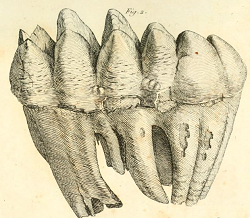Thursday, 2 November 2017
08:35 PM
It got cold quite suddenly today, although it's true that Seattle has a different range of "cold" and "hot" than other parts of the world. Which is to say, we're weenies about both hot and cold. Be informed, therefore, that wordery will be coming to you from warm, inside locations until further notice.
Today's new-to-me word is one that Michael Quinion calls "a word of singular shyness," meaning you're not going to be finding it often. The term is chrestomathy, which refers to an anthology or collection of readings. The word has the connotation that the collection is for pedagogic purposes, especially for learning a language. Thus on Amazon you'll find A Coptic Grammar: With Chrestomathy and Glossary. But the term can also just mean any collection of readings, so you'll also find WEREWOLF! A Chrestomathy of Lycanthropy. (The author of this latter clearly likes the word chrestomathy, because he also has a chrestomathy of voodoo.)
 However, I got hold of the word in a roundabout way from a friend who's been reading H. L. Mencken, the American journalist from early 20th century. In poking around for Mencken writings, I ran across A Mencken Chrestomathy, a collection that the author himself assembled in 1949 out of his own writings (a "self-anthology," someone called it). However, I got hold of the word in a roundabout way from a friend who's been reading H. L. Mencken, the American journalist from early 20th century. In poking around for Mencken writings, I ran across A Mencken Chrestomathy, a collection that the author himself assembled in 1949 out of his own writings (a "self-anthology," someone called it).
As Quinion kind of suggests, it's not the sort of word that is going to come in handy in everyday use. Indeed, use it and you'll run the danger of cacozelia.
And so we move to word origins. This week, roundabout cousin Bronwyn posted a video on my Facebook feed that amusingly discussed "5 Innocent Words With Dirty Origins." One of the terms they cover is mastodon, the elephant-like critter, now extinct, that once roamed the earth. Now, you might look at that word and decide that -don probably has to do with teeth—elephant-like critters do, after all, tend to feature tusks. So maybe something like … "really big teeth"?
 Nah, it's better than that. The -don part does indeed refer to teeth. (Whew) But masto is actually a Greek root meaning "breast." Yes, that kind of breast, whence also mastectomy. In the early 1800s, George Cuvier, the "father of paleontology," assigned the name based on the fact that the animal's molars had nipple-like projections on the top of its molars. (Which distinguished it from other extinct elephant-like critters like mammoths.) If we want to get all crude (but assonant) about it, mastodons are therefore boob-tooths. Nah, it's better than that. The -don part does indeed refer to teeth. (Whew) But masto is actually a Greek root meaning "breast." Yes, that kind of breast, whence also mastectomy. In the early 1800s, George Cuvier, the "father of paleontology," assigned the name based on the fact that the animal's molars had nipple-like projections on the top of its molars. (Which distinguished it from other extinct elephant-like critters like mammoths.) If we want to get all crude (but assonant) about it, mastodons are therefore boob-tooths.
I confess that I had some skepticism about the video and the etymologies it purports. But they seem to check out, so you should check it out. If you like that sort of thing.
Like this? Read all the Friday words.
[categories]
language, Friday words
|
link
|